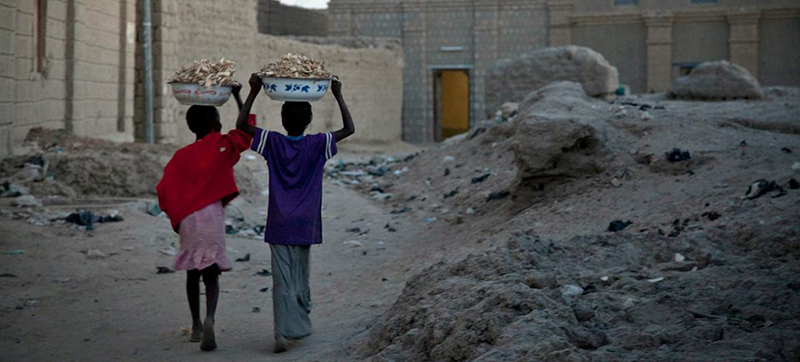 Mali Slavery
Mali Slavery
Mali: Ban slavery by law, say top rights experts
New York: The existence of slavery by descent in Mali continues to generate horrific human rights violations including torture, kidnapping and rape, UN-appointed independent human rights experts said on Monday.
In a call to the Malian authorities to prevent people from being born into slavery, the experts said that the country is the only one in the Sahel region without specific legislation criminalizing enslavement.
“Nothing can justify slavery, whether it be culture, tradition, or religion”, said the experts, Tomoya Obokata, Special Rapporteur on contemporary forms of slavery, and Alioune Tine, Independent Expert on the situation of human rights in Mali.
A ‘widespread’ practice
While there is no data on the number of people born into slavery according to Mali's National Commission on Human Rights, the experts’ statement highlighted estimates from some organizations of at least 800,000 victims, including 200,000 living “under the direct control of their ‘masters’”.
The rights experts stated that descent-based slavery was “widespread” in the central and northern regions of the country, including Timbuktu, Gao and Kidal. They also quoted examples from the western Malian region of Kayes, where regular attacks on people considered slaves have resulted in death, injury and displacement.
Tweet URL
An array of violations
“Continuing to support slavery in the 21st century contradicts the repeated commitments made by Malian authorities to respect, protect and fulfil human rights for all”, insisted the rights experts, who report to the Human Rights Council in an independent capacity.
In a previous statement, the experts had stated that people born into slavery in Mali are compelled to work without pay, can be inherited, and are deprived of basic human rights.
The experts quoted a recent study by Mali's national human rights institution documenting the human rights violations and abuses related to slavery by descent. Those include “acts of violence, assault, torture and other cruel, inhuman or degrading treatment, public humiliation, insults, intimidation, kidnapping and rape committed daily by ‘masters’ against ‘slaves’”.
The study also found evidence of victims being barred from using basic social services, from water pumps to health facilities.
Call for legislation and justice
The experts welcomed recent convictions of individuals for slavery-related crimes and stressed that a specific law criminalizing slavery by descent would help end impunity, “facilitate the prosecution of perpetrators and increase the protection of victims”.
“Slave ‘masters’ must be held accountable for their actions, compensate victims and restore their rights and dignity,” the experts said.
The experts’ call echoes recommendations made during the Interactive Dialogue on Mali at the Human Rights Council’s latest session in March, and as part of the review of Mali's human rights record under the Universal Periodic Review process earlier this month.
Special Rapporteurs and other UN Human Rights Council-appointed rights experts, work on a voluntary and unpaid basis, are not UN staff, and work independently from any government or organisation.
Support Our Journalism
We cannot do without you.. your contribution supports unbiased journalism
IBNS is not driven by any ism- not wokeism, not racism, not skewed secularism, not hyper right-wing or left liberal ideals, nor by any hardline religious beliefs or hyper nationalism. We want to serve you good old objective news, as they are. We do not judge or preach. We let people decide for themselves. We only try to present factual and well-sourced news.







